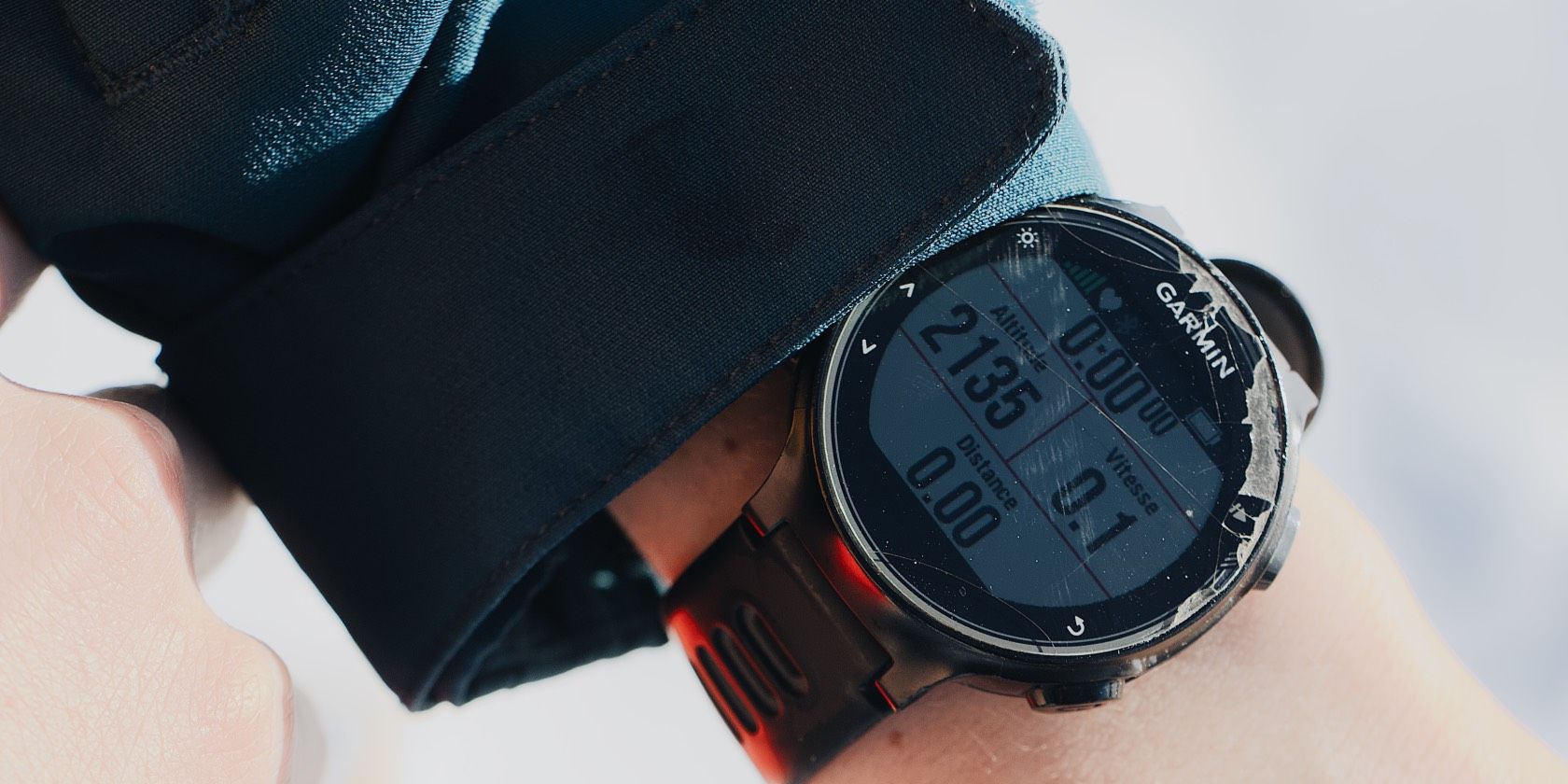For those who love the thrill of a challenge, fitness trackers are a great way to stay on track with your goals. Not only do fitness trackers give you benchmarks for your progress, but they also give you regular reminders for things like movement, drinking water, and more.
However, while fitness trackers can be a valuable tool for your fitness journey, they can also become problematic. If you're a fan of fitness trackers but are beginning to see some negative effects from using them, here are some tips on creating a better relationship with these devices.
1. Listen to Your Body
For fitness lovers, the thrill of seeing the numbers go up can be addicting. Whether it is the number of calories burned, minutes in the zone, or daily steps, the rising count can give you a rush.
While it's always good to build up your ability to do more, it's also important to listen to your body and notice when it's time to stop. For example, if you're on holiday with family or having an unusually stressful time at work, it's okay if you're tired and fall short of your fitness goals the next day. If you wear an Apple Watch, check out more tips for managing Activity Rings on vacation.
After all, it can be worth it to miss your usual step count if it's because you're feeling tired after enjoying a night out with friends you haven't met in a long time. Although you can force yourself to reach a certain number of steps, it's important to give your body enough time to rest and recover.
While consistency is helpful, learning to listen to your body when things are out of the ordinary is crucial to a sustainable fitness journey.
2. Speak With Professionals After a Fitness Hiatus
If you're returning to working out after a long hiatus due to health or personal reasons, it's recommended that you consult a professional before setting your fitness goals. For example, if you took a long break from the gym because of an injury, get clearance from your physical therapist or physician before going back and setting unrealistic goals on your fitness wearable.
Athletes returning from a hiatus may be prone to a range of injuries, as their capabilities may have changed. That risk can be exacerbated by fitness trackers that remind them how strong they were before their unintentional break.
Building your strength, endurance, and agility after a hiatus can take weeks, months, or even years. Although it can be a frustrating experience, you shouldn't shock your body by overworking it. Focus on building a sustainable routine and avoid unnecessary injury risks, so you can get back to a healthy fitness habit.
3. Understand How Every Body Is Different
It's easy to get overwhelmed by constant exposure to Instagram bodies and unrealistic standards. In this world of endless media consumption, you can easily be manipulated by filters, lighting, and other editing tricks. It's important to remember that each body is different, including yours.
In addition, if you suffer from medical conditions that cause issues like fatigue or muscle weakness, you can't expect to have the same fitness tracker targets as someone who is perfectly healthy.
It's best not to give so much weight to the numbers on your fitness tracker, especially when you may have underlying conditions that add a layer of difficulty. After all, while fitness trackers are valuable, they only tell a small part of the fitness equation.
4. Know the Limits of Exercise
For most people who use fitness trackers, the focus is often on increasing movement. Although exercise and movement are necessary components for overall health, they're not everything.
It's important to manage your expectations for what you can achieve with exercise alone. For many people looking to keep a healthy lifestyle, nutrition is just as critical, if not more so. Thankfully, there are many apps that you can use to eat healthier.
If possible, consult a professional nutritionist or physician to help you ease into a healthier lifestyle while taking into account your specific nutrient deficiencies.
5. Avoid Unhelpful Communities
In reality, another person doing the same types of workout as you with the same intensity may see entirely different results. For this reason, you mustn't blindly follow people who lead based on personal experience alone.
Your body and limitations are often influenced by things outside the gym, like genetics influencing fat distribution, muscle-building capacity, and body shape. While sculpting your body by building muscle and losing fat is typically possible to some extent, it's not feasible to specifically target problematic fat areas, no matter what the influencers or celebrities tell you. Scientific research into this area—such as a 2011 Journal of Strength and Conditioning Research study (PubMed)—has found that targeting fat loss to specific areas is not practical.
Be very discerning about the fitness communities and fitness tracker groups you follow in apps or on social media. Although some communities may appear helpful, not all are led by trained professionals whose advice is backed by science.
6. Be Kind to Yourself During Lifestyle Changes
Unfortunately, fitness isn't a permanent state; it's a lifestyle. For this reason, people can't remain at their peak fitness levels forever. You will naturally have periods wherein fitness levels fluctuate, and that's okay.
If you are experiencing massive life changes like moving to a new country, starting a new job, or becoming a parent, it's normal for you to put fitness in the back seat until you've established a good routine.
For those who are or have recently experienced pregnancy, it is recommended that you work with trainers who specialize in pre- and post-natal activities to reduce the risk of injury. In instances like this, fitness trackers may not be equipped to measure most of the progress that's happening below the surface. Alternatively, there are several workout apps designed specifically for pregnant mothers.
Keep a Holistic View of Health With Your Fitness Tracker
If you've ever found yourself being pressured to overexert or get frustrated because you're not hitting your fitness tracker goals, take a step back and remember why that tracker is on your wrist in the first place. To build a healthy relationship with your fitness tracker, you have to be firm with how much movement is safe and sustainable for you.
With a holistic view of health, it is possible to make your fitness tracker work for you and not the other way around. Fitness trackers are tools, and you decide what to make with them.



